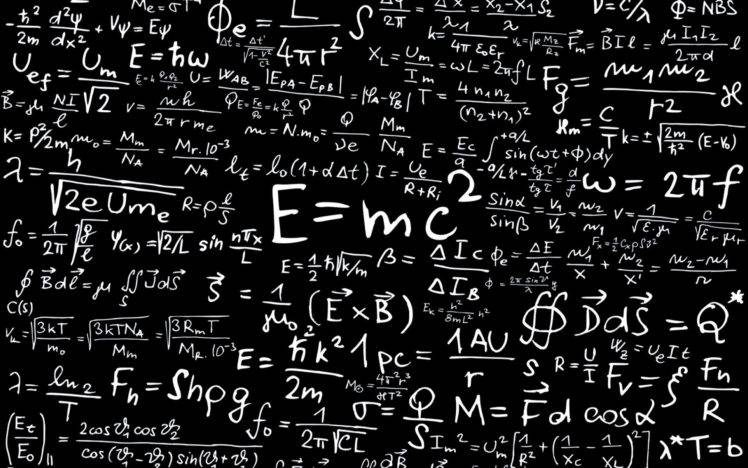The aim of BIGMATH is to provide training on Data Science – at PhD level – to a group of ESRs, by completing their background with a set of mathematical, computational and “soft” (entrepreneurial, economical, communicative) skills, strengthening their capacity for innovation and ability to join the productive world.
Each ESR is undergoing the Project specific research training offered by the academic and industrial partners directly involved in the industrial project. Furthermore, the joint research training are offered to all ESRs, to provide them a wide spectrum of competence, going beyond the specific industrial project that they are developing. The soft skills training are offered both in the form of dedicated courses and in a more informal way through the R&D activities in the companies of the network, and through presentations of the ESRs during the network regular meetings and during international conferences and forums. All the ESRs contribute to the communication, dissemination and outreach activities. ESRs participate in scientific dissemination and public engagement at European level. Planned secondments and training activities will expose ESRs to diverse environments and experiences, and will improve their chances to find a job in the more and more increasing number of companies which exploit the potential of Big Data.
The BIGMATH fellows
Stevo Racković ESR#1
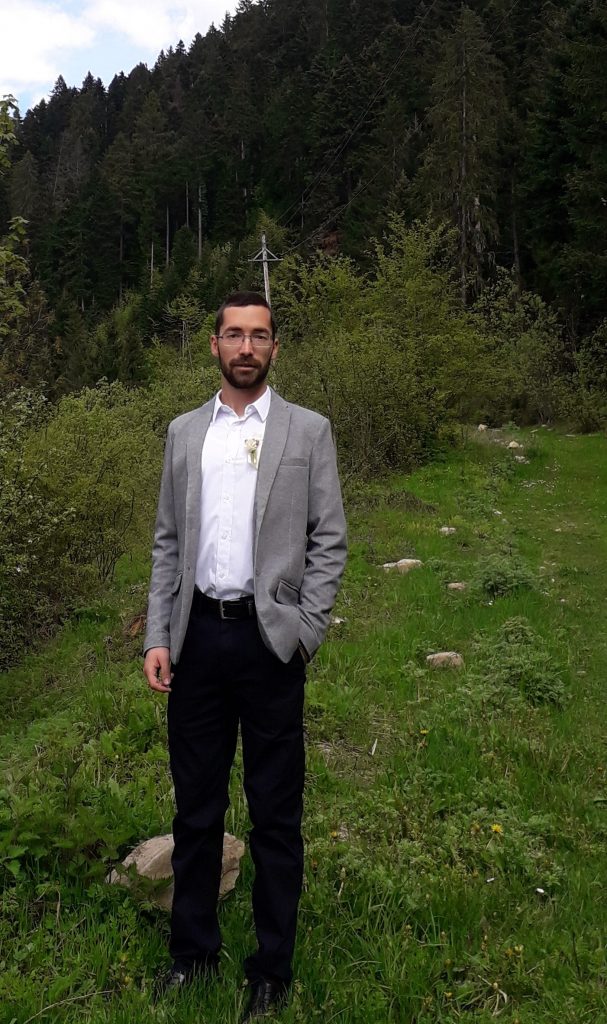
My name is Stevo Racković and, as a BIGMATH PhD student, I am enroled at Instituto Superior Tecnico in Lisbon. I was born in Novi Sad, city in northern Serbia, and spent majority of my life there. I grow up with brother and sister and all three of us where taught about importance of education. My interest for mathematics started as early as elementary school, so later I enrolled in Applied Mathematics at Faculty of Sciences in Novi Sad. I have finished bachelor studies of Mathematics of Finance, and masters of Data Science, where I acquired not only mathematical background, but also important career skills and friends for life. Last year prior to PhD I worked as junior researcher at Faculty under mentor Dušan Jakovetić.
Why I applied to the BIGMATH Marie Skłodowska-Curie fellowship
BIGMATH got my attention from the firs moment I heard about it. After finishing masters, I was rather more attracted by industry than academia, but this program offered both; and with combination of supervisors from both sides, it promises extraordinary training.
What I will do during the fellowship
The industrial partner at my project is 3Lateral studio from Novi Sad. The main focus of their work is animation of human face and expressions. Biokinetic models of human face are parameterized as functions representing muscle contractions in time, and there is huge need for processing large 4D time series in real time. In order to achieve this, my main task will be to provide and implement innovative techniques of distributed optimization on a GPU cluster in an efficient way; cooperating with optimization groups from IST Lisbon and PMF Novi Sad.
Which are my expectations from this fellowship
During next three years, I hope to acquire knowledge and expertise that will empower me to conduct independent researches like this one; and maybe even more important, out of the box skills for bridging the gap between academia and industry. Another very important point is building network of connections important for successful career. With mobility and collaborations proposed by program, I will have opportunity to meet and work with radically different people, coming not only from various fields, but also different cultures.
Rongjiao Ji ESR#2
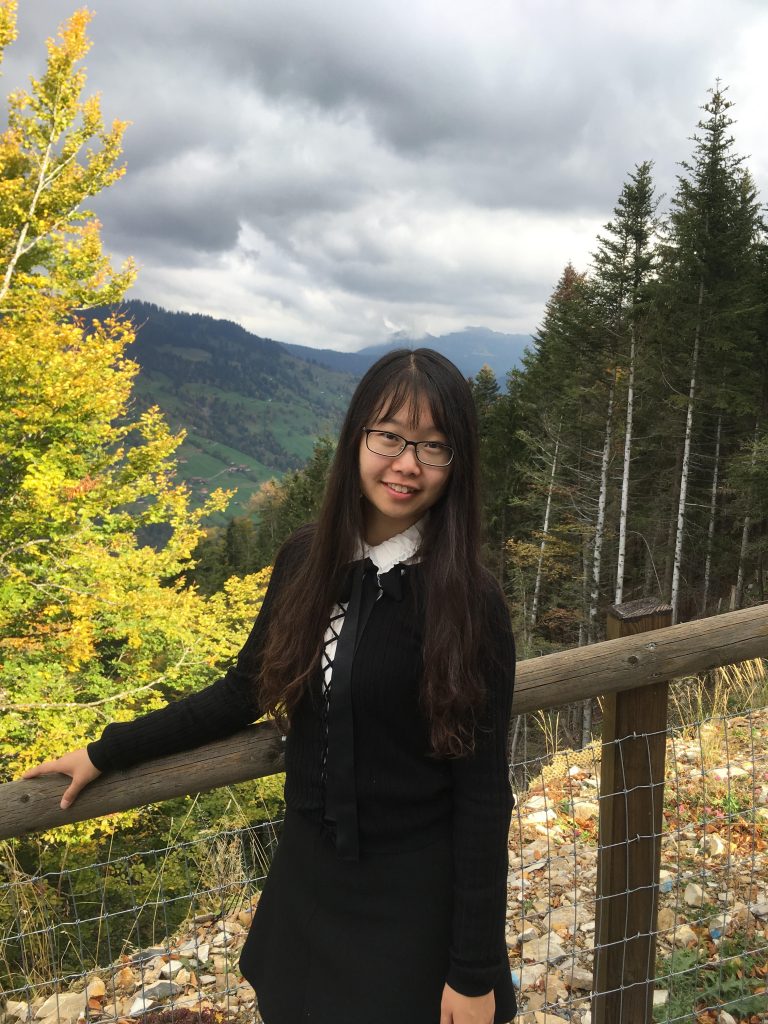
I am currently the first-year PhD student in the Mathematics Department, Universita degli Studi di Milano (University of Milan). I received my master degree in Mathematics and Applications department, Institute Superior Tecnico, University of Lisbon. Before that, I got my bachelor degree in Information and Computing Science, Mathematics department, Dalian University of Technology.
In my bachelor’s last year, I took part in a one-year exchange program in which I finished my bachelor thesis and one-year credits of my master, and then, directly entered the second year of master. Afterwards, I was a research assistant at Signal Processing and Image Group under a one-year research reward in the Institute for Systems and Robotics.
Why I applied to the BIGMATH Marie Skłodowska-Curie fellowship
For complicated high-dimensional high-volume datasets, new models based on the data’s latent structures are in huge demand. The scientific goal of BIGMATH, to address the major challenges that the Big Data era is posing to mathematical research, naturally combines mathematics and data science in which fields I have great interests, and fits nicely my previous research experience.
What I will do during the fellowship
My research focuses on studying the mathematical morphology for the prediction of face expression transition. Human face expression conveys informative but subtle messages, which attracts great interests of researchers trying to give convincing answers from different profiles. We are one of them. From the perspectives of mathematics and computer graphics, we intend to give a realistic description of facial expression, by constructing digital versions based on the 4D data scanned from real human facial expression. Moreover, new stochastic geometric techniques would be developed to model smoothly the transition of the space-time distributions of the landmarks or surfaces describing the expression.
Which are my expectations from this fellowship
My first and biggest expectation from the fellowship is to be capable of carrying out innovative and original research in my future career and overcoming the challenging problems that may have no straightforward answers. I believe in lifelong learning, so I treat the PhD study as the first steps towards the direction of independent, creative and critical thinking, personal organisation and self-awareness. Furthermore, because of BIGMATH, I have a chance to gain more experience from both the academy and the industry, which will greatly strengthen my skills of team-working, communication and quick-learning as well
Filipa Valdeira ESR#3
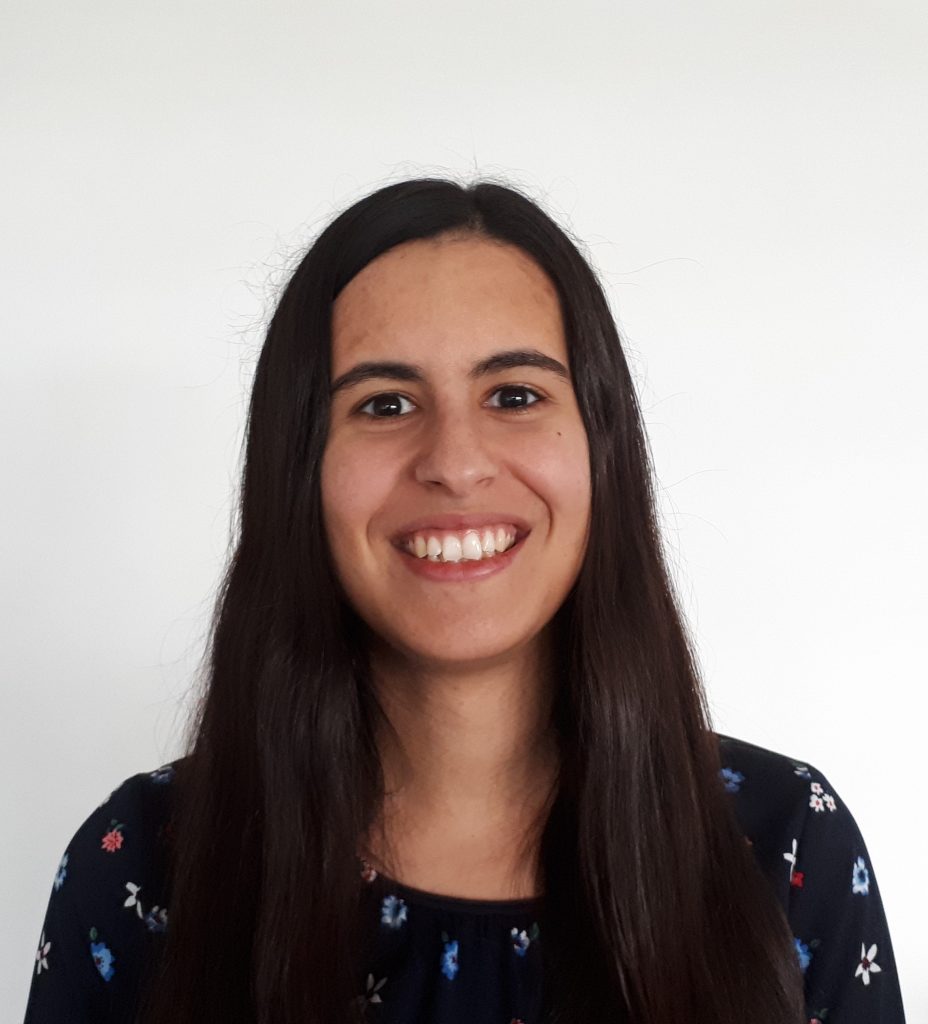
I have a background on Engineering, having completed an Integrated Masters in Aerospace Engineering at Instituto Superior Técnico (Lisbon University), with a Specialization in “Avionics” and a Minor in “Control and Systems”. During the last year of the degree, I conducted my Masters Thesis on the topic of optimization and statistics, contemplating a strong mathematical component. After that, I have enrolled in the BIGMATH PhD programme, thus proceeding with my studies.
Why I applied to the BIGMATH Marie Skłodowska-Curie fellowship
My main motivation was the chance to research and work on the field of Big Data, where I would like to develop my career. Furthermore, I was drawn by the possibility of incorporating both an academic and industrial component, which is not a common opportunity and leads to a more complete and diverse background.
What I will do during the fellowship
During the fellowship, I will work on Project 3 (ESR3), which entails a co-operation between the University of Milan and uRoboptics. The proposed industrial challenge is to produce models of the human head to be used in prothesis manufacturing processes. Therefore, I will conduct my research on the area of statistic shape modelling, particularly focusing on detailed parts of human faces, such as noses or ears. The goal is to obtain a parametric model of those parts from 3D point clouds, retrieved from real people scans.
Which are my expectations from this fellowship
During this fellowship, I expect to develop a strong academic background on the state-of-the-art of Big Data related fields. Besides, I hope to gain a good understanding of the industrial context. One hand, to guide my research according to the technical challenges and real life applications. One the other, to develop soft skills and professional competences, which can only be acquired in such setting. This will not only result in a better preparation for a professional future, but also provide more insight on whether I should pursue an academic or industrial career. Finally, I expect to be involved in an international network of people with similar interests, in order to further develop my knowledge.
Rasool Taban ESR#4

My name is Rasool Taban, and I was born in Kermanshah, in 1991, a city in the west of Iran, where I spent 23 years there; and received my Bachelor of Science in Computer Engineering – Software Engineering from Razi University, one of the state universities in Iran. Then I studied Artificial Intelligence and Robotics on the Master of Science level at the University of Tehran, which is the oldest and the best university in Iran. During my Master education, I got the opportunity to be introduced to Machine Learning, and Data Science, which became my main interests in working and education. After graduation from my master studies, for almost one year, I worked at HomaPlus Co. handling with data from the news presses websites. At this moment, I have been enrolled as a Ph.D. student at the University of Lisbon – Instituto Superior Tecnico, and I am working on the BIGMATH ESR4 project with the title of “credit scoring and statistical prediction of credit default.”
Why I applied to the BIGMATH Marie Skłodowska-Curie fellowship
At first glance, BIGMATH has provided the opportunity to work on the real-world problem in the Big Data, and Data Science era, which was very alluring to me. Afterward, the chance of collaboration with two renowned firms, SDG group, and CIF, was a unique opportunity which totally boosted my interest in this position twice. In other words, this Ph.D. position has offered academic and industrial research opportunities at the same time that is extremely hard to find.
What I will do during the fellowship
The project which I am going to carry out my Ph.D is BIGMATH ESR4 with the title of “credit scoring and statistical prediction of credit default.” This project is supervised by the University of Lisbon – IST in Portugal and two firms SDG group from Italy, and CIF from Serbia, where I need to spend some months in each side. The goal of this project is the improvement of existing credit scoring models and the related prediction of default by a combination of different sources of data such as databases of companies, servicing data, etc. The project will be accomplished in two phases, first on machine learning variable and feature analysis techniques, and second on design and optimization of new statistical models for financial purposes.
Which are my expectations from this fellowship
In order to mention my expectations during this Ph.D. fellowship, I could categorize them in three different domains. First, scientific wise aspect, I hope to deepen my knowledge about Data Science and Mathematics, with a particular focus in MSO (Modelling, Simulation, and Optimization) activities. Second, career wise aspect, that relates to the improvement of my skills in problem-solving, scientific thinking, and establishing connections in the two companies (SDG and CIF) involved in the project, to find out an abstract way to bridge between university and industry. The last aspect is related to personal expectations to get in contact with other colleagues, from different cultures, broaden my perspective about human relationship, and learn to work in a team and create a network of friendships and collaborations.
Perfect Yayra Gidisu ESR#5
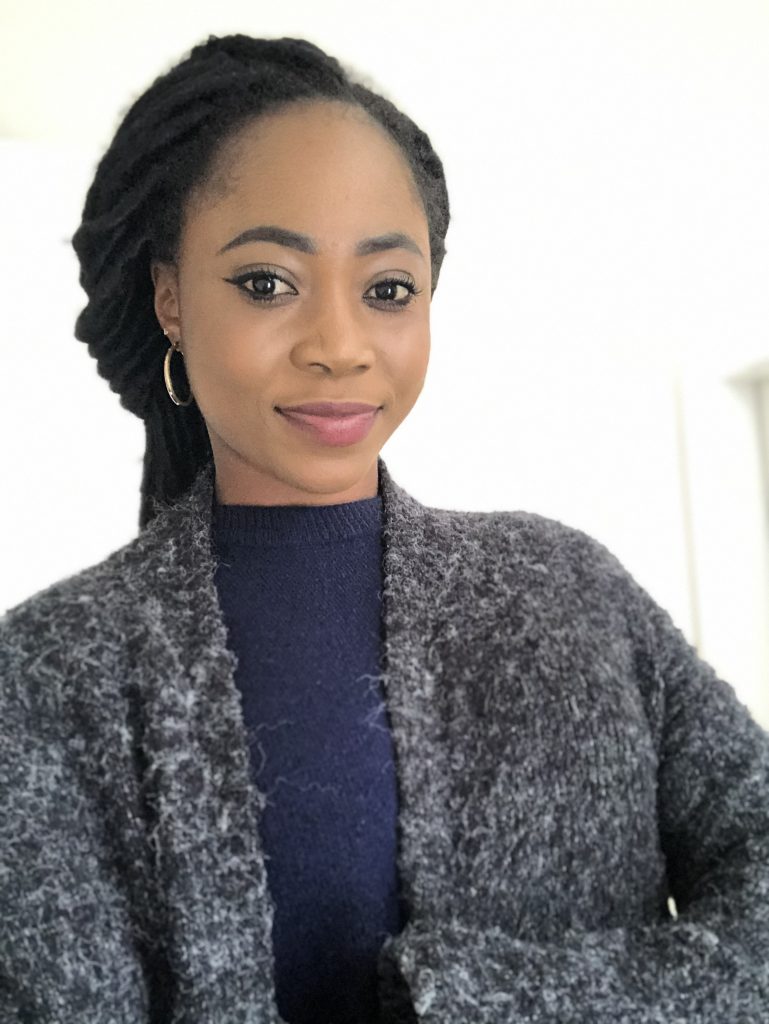
Perfect Yayra Gidisu is a PhD candidate in Applied Mathematics at Eindhoven University of Technology. She received the MS degree with honors in Economics and Finance (Quantitative finance curriculum) from University of Milan and BA degree with honors in Economics and Political Science from University of Ghana, in 2018 and 2013 respectively. During her Master’s degree, she was awarded the only position available for an exchange programme at Peking University (China) and was also awarded Merit Scholarship in 2017 and 2018. Prior to her Master’s degree studies, she worked at GCB Bank, Ghana as a service desk officer for a year and then as an internal audit officer for 2 years.
Why I applied to the BIGMATH Marie Skłodowska-Curie fellowship
I enjoyed my research work for my Master’s thesis and felt I’ve got more to offer as an independent researcher. Among all the PhD projects I have looked at various Universities, I decided to go for the BIGMATH project for two reasons. The fact that the project is in collaboration with the industry and secondly because I will be working on not an abstract problem but a real one which will contribute to the success of the business.
What I will do during the fellowship
My project is about “Scoring individual financial investment potential”. I will develop a feature extraction algorithm for dimensionality reduction and identification of relevant variables to describe the financial behavior of the individuals. The features selected using the algorithm should help in identifying unexploited financial potential.
My research will focus on using numerical linear algebra to find lower dimensional representations of high dimensional data as seen in information retrieval. I intend to build on methods applied in other contexts such as matrix factorization. Aside my research work, I will also be engaged in teaching activities and attending relevant conferences and seminars.
Which are my expectations from this fellowship
I expect to sharpen my research skills to undertake in-depth independent research. I expect to improve my public speaking ability through conference talks, poster presentations, and teaching. I expect to gain project management skills. Since PhD is an exercise in project management. Finishing my dissertation requires me to design a project, make a realistic timeline, overcome setbacks, and manage stakeholders. During this time, I will also have to manage long-term projects as well as short-term goals which requires strong organizational skills. I expect to enhance my leadership and management skills through mentoring, teaching evaluating someone’s performance (grading) and giving constructive feedback. I expect this fellowship to help me be resilient to cope with the pressure of the research industry. I intend to build valuable network in the academia and industrial partners.
Giulia Ferrandi ESR#6
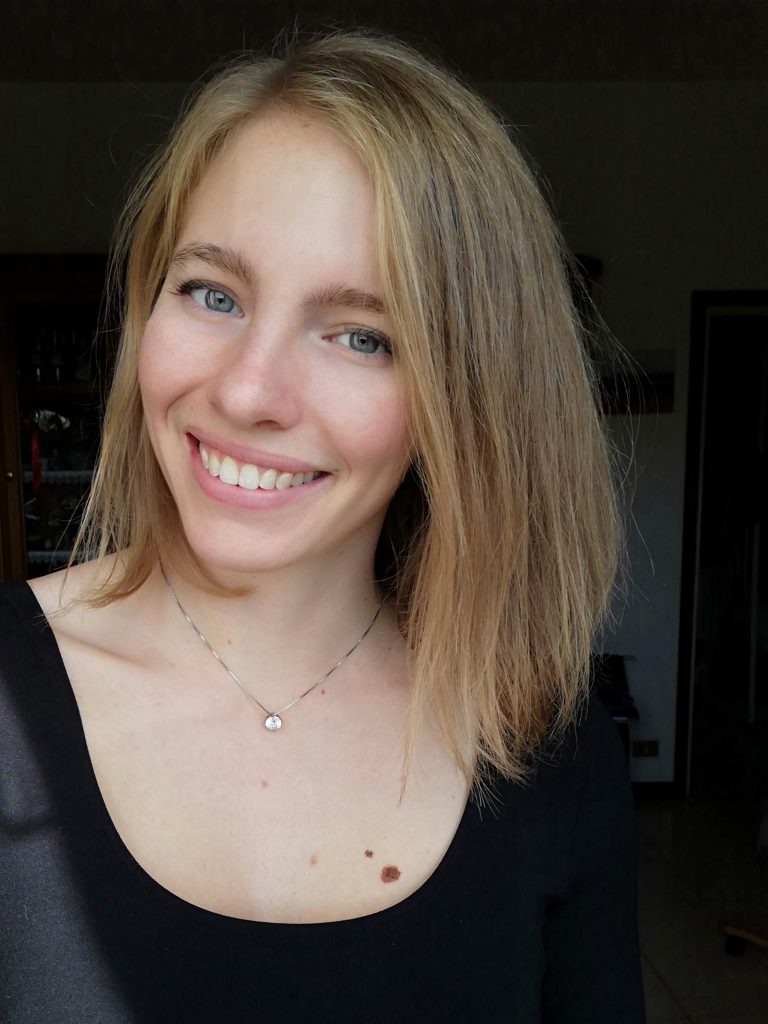
My name is Giulia Ferrandi and I was born in Italy, in 1993. I am the Early Stage Researcher 6 in the BIGMATH Marie Skłodowska-Curie fellowship, and I am working with the University Technology of Eindhoven as a PhD student, in collaboration with SDG Group in Milan. Before this, I achieved both the bachelor’s and the master’s degree in Mathematics at Università degli Studi di Milano. Here I deepened my knowledge in Probability and Statistics, and learned the basis of some programming languages. During my academic studies I taught in High School for two months; after graduating I worked at Brembo S.p.A. for ten months, handling with data from the aluminum foundry equipment. In my free time I love knitting, trekking, playing volleyball and taking care of my orchids.
Why I applied to the BIGMATH Marie Skłodowska-Curie fellowship
I applied to the BIGMATH Marie Skłodowska-Curie fellowship because I liked the idea of both deepening my academic knowledge in Applied Mathematics and working in industry: in other contexts it is difficult to carry over these two aspects at the same time.
What I will do during the fellowship
The project of my fellowship is “Prediction of failure events in complex productive systems” with TU/e and SDG Group. Nowadays several industrial processes are subject to continuous monitoring with the aim of control failure events or varying quality in the end-product. The hope is not only to predict these outputs, but also to detect their causes. Since these processes have deterministic components, the initial idea is to use model order reduction techniques to decrease dimensionality and highlight relevant features. The case study is offered by SDG Group, and it is about a packaging line in a pharmaceutical company. Data are collected with high frequency and are mainly time series.
Which are my expectations from this fellowship
During this fellowship, I expect to increase my knowledge by learning not only from books and articles, but also from experienced people. I aim to take advantage of these studies in order to develop my creativity and build new models for data analysis. I also expect to grow as a person: I would like to sharpen my critical thinking and improve some soft skills, especially communication.
Greta Malaspina ESR#7

My name is Greta Malaspina and I was born in Italy, where I grew up and received most of my education. I studied pure mathematics on the undergraduate level at the University of Pisa and then received a Master degree in applied mathematics from the University of Florence. During the master program I got the opportunity to be introduced to mathematical modeling, advanced numerical analysis and numerical optimization, which became my main focus. Working on my master thesis I decided that I wanted to continue my studies and pursue a PhD, and I am actually enrolled at the Department of Mathematics and Informatics of the University of Novi Sad, Serbia.
Why I applied to the BIGMATH Marie Skłodowska-Curie fellowship
I think Big Data is one of the fields that offers the most challenging applications of Numerical Optimization, so the proposed research topic is what I found most interesting. Moreover, I particularly value the fact that an industrial partner is directly involved, as I think that working with people coming from different backgrounds can represent a unique learning opportunity.
What I will do during the fellowship
I will conduct my research at the University of Novi Sad and Sioux Lime in Eindhoven, which is a company that provides mathematical-engineering consultancy services to industries working in many different fields. We will work on a numerical method for the solution of network adjustment problems, combining general optimization methods with the particular features coming from the specific applications that we will consider. The hope is to merge direct and iterative solvers to develop a method with a strong theoretical foundation, able to deal with large scale problems of this kind.
Which are my expectations from this fellowship
What I expect from the upcoming years is to broaden my knowledge in the field of Numerical Optimization for Big Data and to learn how to conduct independent research. More generally, I would like to develop my organizational, communication and team-working skills and to collaborate with a large group of people from academy and industry, hoping to learn as much as possible from both sides.
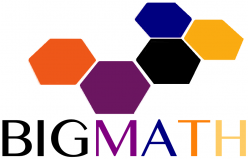
 Users Today : 1
Users Today : 1 Users Yesterday : 2
Users Yesterday : 2 Users Last 7 days : 23
Users Last 7 days : 23 Users Last 30 days : 99
Users Last 30 days : 99 Users This Month : 75
Users This Month : 75 Users This Year : 317
Users This Year : 317 Total Users : 4263
Total Users : 4263 Views Today : 1
Views Today : 1 Views Yesterday : 2
Views Yesterday : 2 Views Last 7 days : 27
Views Last 7 days : 27 Views Last 30 days : 121
Views Last 30 days : 121 Views This Month : 96
Views This Month : 96 Views This Year : 381
Views This Year : 381 Total views : 7572
Total views : 7572 Who's Online : 0
Who's Online : 0